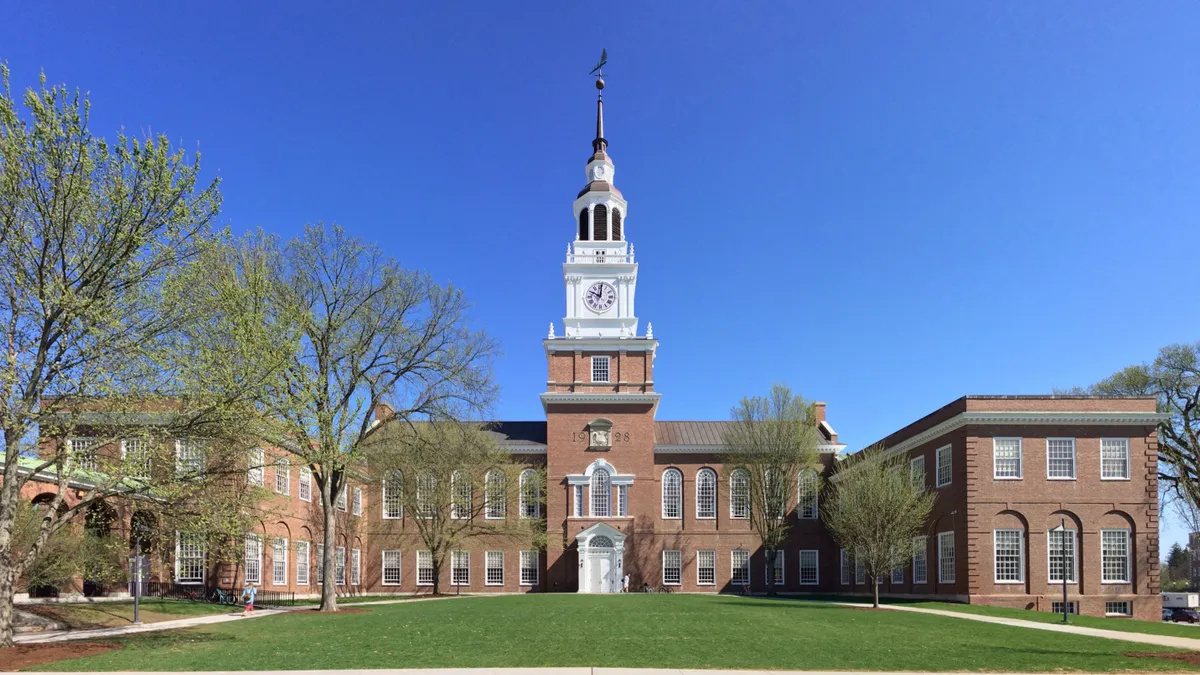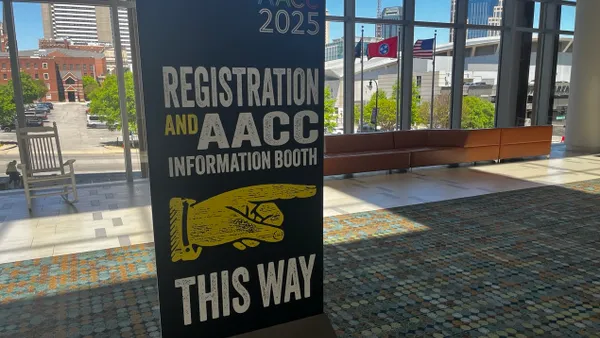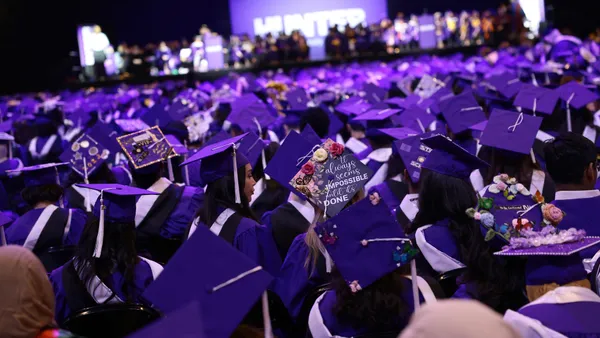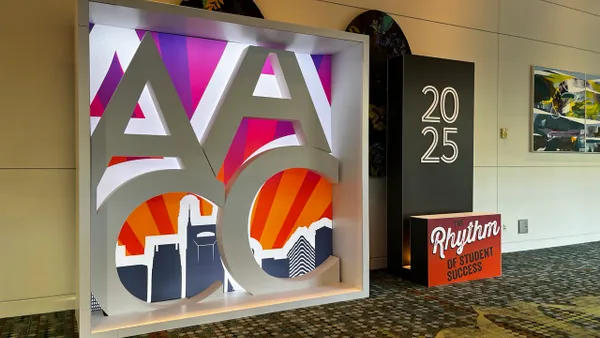Dive Brief:
- Basketball players at Dartmouth College cast a historic vote Tuesday to become the first unionized college athletes in the U.S., furthering the debate over whether student-athletes should be treated as employees.
- Members of Dartmouth's men's basketball team voted 13-2 to be represented by SEIU Local 560, a chapter of the Service Employees International Union. Under U.S. labor law, the vote requires the New Hampshire college to engage in good faith bargaining with the group.
- The fight isn’t over, however, as Dartmouth Tuesday promptly submitted a 58-page appeal to the decision allowing the vote.
Dive Insight:
Tuesday's unprecedented vote comes as the higher education sector grapples with the growing labor rights movement of college athletes.
"We always negotiate in good faith and have deep respect for our 1,500 union colleagues, including the members of SEIU Local 560," Dartmouth said in a Tuesday statement. "In this isolated circumstance, however, the students on the men’s basketball team are not in any way employed by Dartmouth."
The first sign of support for student-athlete unionization happened in 2021, when the National Labor Relations Board’s general counsel, Jennifer Abruzzo, said some college athletes should be considered as employees.
A regional director at NLRB ruled last month that the Dartmouth players count as university employees under the National Labor Relations Act and were eligible to hold a unionization vote.
Dartmouth’s basketball players perform work that benefits the university in exchange for compensation like equipment, apparel and game tickets, according to Laura Sacks, regional director for NLRB’s Boston-based Region 1. The college also “exercises significant control over their work,” she said. The board considers both to be conditions showing employment.
Earlier this week, Dartmouth attempted to block the election by arguing that Sacks "misapplied, misunderstood and made errant findings of facts" when issuing the decision. The college also said the vote should be suspended because a significant portion of voting players will no longer be on the team once the legal issues Dartmouth raised are addressed.
The motion to stop the election said at least a quarter of the voting members will have played their last game in the near future.
Nonetheless, the NLRB permitted the vote.
Cade Haskins and Romeo Myrthil, two players on Dartmouth's basketball team, called on the college's president and board of trustees to work with the newly formed union to create “a less exploitative business model for college sports.”
"It is self-evident that we, as students, can also be both campus workers and union members," they said in a joint statement Tuesday. "Dartmouth seems to be stuck in the past. It’s time for the age of amateurism to end."
Haskins and Myrthil, who serve as team representatives, said they intend to talk about unionization with athletes at Dartmouth and other Ivy League institutions in the coming months.
Mary Kay Henry, international president of SEIU, said the unionizing players will be remembered as one of the greatest basketball teams in history.
"The Ivy League is where the whole scandalous model of nearly free labor in college sports was born and that is where it is going to die," she said Tuesday.
The NLRB declined to comment on the election.
In appealing the board's decision to consider the players employees, Dartmouth wrote Tuesday that its athletes are students first and do not receive monetary compensation for playing basketball.
The Ivy League college also said its men's basketball program operates in the red, costing it hundreds of thousands of dollars each year. This, the college argued, proves that the team is offered as "part of its holistic approach to education" rather than operated as a money-making endeavor.
"If the Regional Director’s Decision is allowed to stand, it will be a dramatic and far-reaching deviation from well-settled Board precedent that employers should be able to confidently rely upon," Dartmouth said.
Aside from its appeal over the ruling deeming the players employees, Dartmouth has another route to object to the unionization effort. The college has until March 12 to object to the election results. If no objections are filed, SEIU will be certified as the players' bargaining representative.













